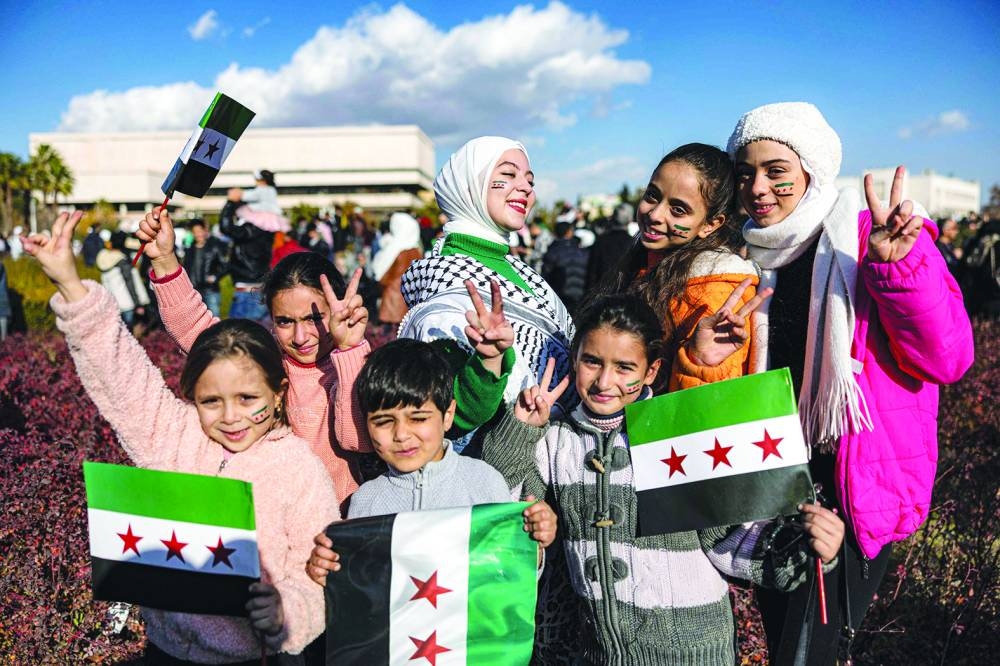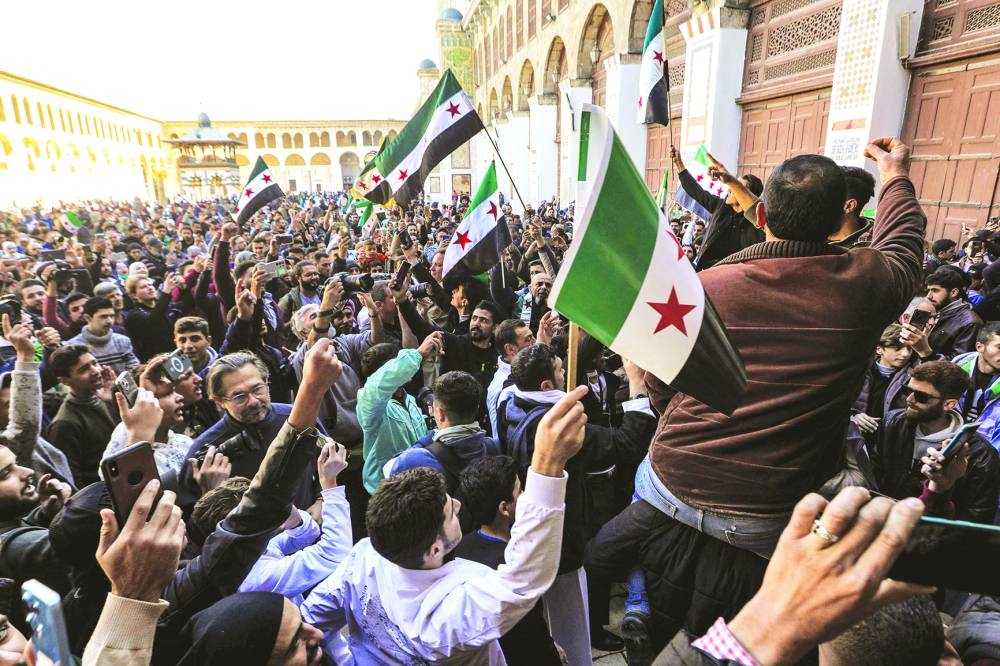Thousands of Syrians gathered in squares and public spaces across various cities to celebrate the fall of Bashar al-Assad's regime.
Ahead of Friday prayers, crowds of Syrians gathered in the courtyard of Umayyad Mosque in Damascus, with men, women, and children coming together in a rare sight in the heart of the Syrian capital.
The protesters waved the independence flag, used by the Syrian opposition since 2011, chanting slogans calling for Syrian unity.
Earlier Friday, the leader of the Hayat Tahrir al-Sham group (HTS), Abu Mohammed al-Jolani -- who now uses his given name Ahmed al-Sharaa -- had urged people to take to the streets to celebrate "the victory of the revolution".
"We are gathering because we're happy Syria has been freed, we're happy to have been liberated from the prison in which we lived," said Nour Thi al-Ghina, 38.
"This is the first time we have converged in such big numbers and the first time we are seeing such an event," she said, beaming with joy.
"We never expected this to happen."
HTS fighter Mohammed Shobek, 30, posed for pictures with local children with a rose in the barrel of his Kalashnikov assault rifle.
"We've finished the war in Syria and started praying for peace, we started carrying flowers, we started building this country and building it hand in hand," he told AFP.
In 2011, Assad's crackdown on peaceful protesters triggered a 13-year civil war that tore Syria apart, killing more than half a million people and displacing millions more.
Exhilarated crowds chanted: "One, one, one, the Syrian people is one!"
Many held the Syrian independence flag, used by the opposition since the uprising began.
Dozens of street vendors around the mosque were selling the three-star flags -- which none would dare to raise in government-held areas during Assad's iron-fisted rule.
Pictures of people who were disappeared or detained in Assad's prisons hung on the mosque's outer walls, the phone numbers of relatives inscribed on the images.
At the core of the system Assad inherited from his father Hafez was a brutal complex of prisons and detention centres used to eliminate dissent by jailing those suspected of stepping away from the ruling Baath party line.
War monitor the Syrian Observatory for Human Rights said in 2022 that more than 100,000 people had died in the prisons since 2011.
Last month, forces led by Jolani's HTS launched a lightning offensive, seizing Damascus and ousting Assad in less than two weeks.
The group has now named one of its own, Mohammad al-Bashir, as interim prime minister in a post-war transitional government until March 1. On Friday he addressed worshippers at the Umayyad Mosque.
Omar al-Khaled, 23, said he had rushed from HTS's northwestern stronghold of Idlib, cut off from government areas for years, to see the capital for the first time in his life.
"It was my dream to come to Damascus," the tailor said.
"I can't describe my feelings. Our morale is very high and we hope that Syria will head towards a better future," he said, adding: "People were stifled... but now the doors have opened to us."
Thousands of people also gathered in the squares and streets in other Syrian cities, including Homs, Hama and Idlib.
There was a festive and relaxed atmosphere as hundreds rallied in the main square of Syria's second city Aleppo, a scene of fierce fighting during the country's civil war, AFP correspondents reported.
In the southern city of Sweida, the heartland of Syria's Druze minority where anti-government demonstrations have been held for more than a year, hundreds took to the streets, singing and clapping in jubilation.
"Our joy is indescribable," said Haitham Hudeifa, 54. "Every province is celebrating this great victory."

Children pose with independence-era Syrian flags during a celebration of the ouster of president Bashar al-Assad at the Umayyad Square in central Damascus Friday.

People chant slogans and wave independence-era Syrian flags as they gather in the courtyard of the Umayyad mosque in the old city of Damascus Friday.
